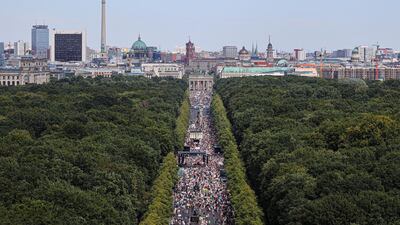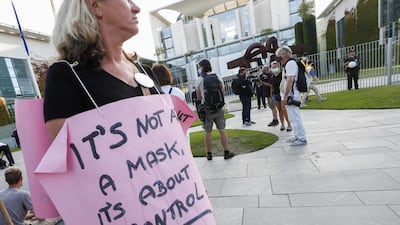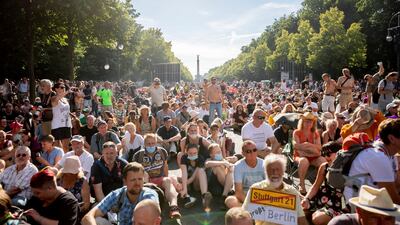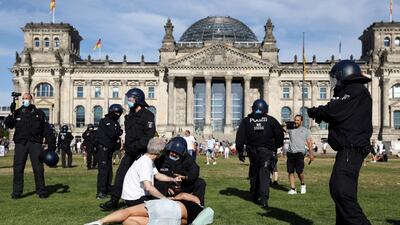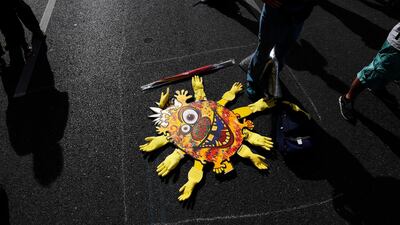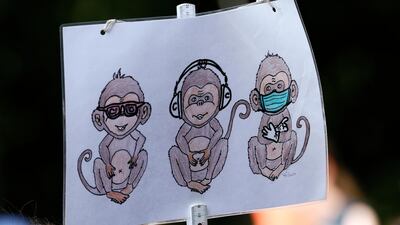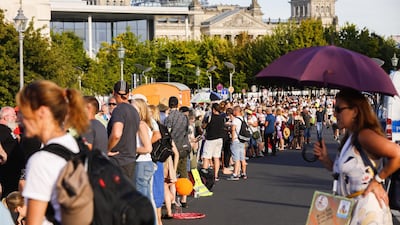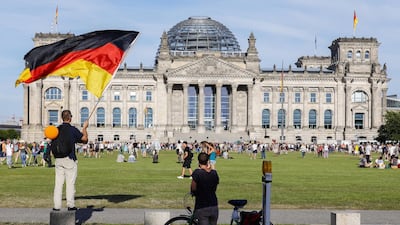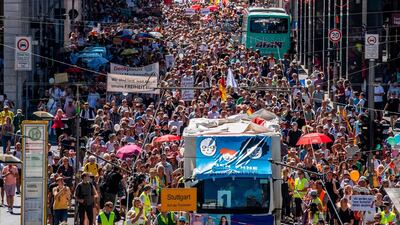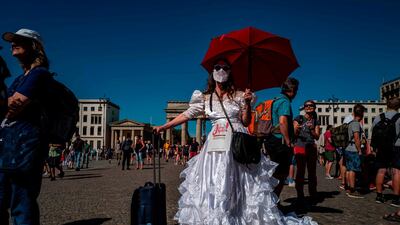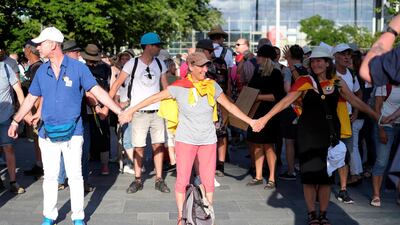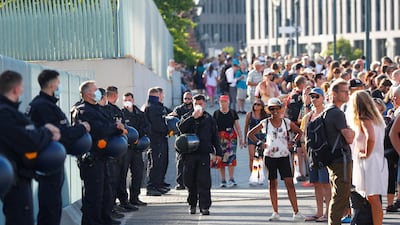Loudly chanting their opposition to face masks and vaccines, thousands of people gathered in Berlin on Saturday to protest against virus restrictions before being dispersed by police.
Officers put turnout at about 20,000 – well below the 500,000 organisers had announced as they called for a “day of freedom” from months of Covid-19 curbs.
German authorities are concerned about a rise in infections in recent weeks and politicians took to social media to say the rally was irresponsible.
“We are the second wave,” shouted the crowd, a mixture of hard left and right and conspiracy theorists as they converged on the Brandenburg Gate, demanding “resistance” and dubbing the pandemic “the biggest conspiracy theory”.
Few protesters wore a mask or respected the 1.5-metre social distancing requirement, despite police repeatedly calling on them via megaphone to do so.
After several warnings, at the end of the afternoon Berlin police ordered protesters to leave the area.
Police said on Twitter they had launched legal proceedings against organisers for not respecting hygiene rules.
A handful of people held a counter-demonstration. Dubbing themselves “grandmothers against the extreme right”, they hurled insults at protesters, calling them Nazis.
The protest’s “Day of Freedom” slogan echoes the title of a 1935 documentary by wartime filmmaker Leni Riefenstahl on a party conference by Hitler’s National Socialist German Workers’ Party.
Several politicians condemned the demonstration.
The virus that causes Covid-19 had killed about 9,000 people in Germany as of Saturday.
Saskia Esken of the Social Democrats, a junior coalition partner in Angela Merkel’s government, blasted the demonstrators as “Covidiots”.
In a tweet, Ms Esken railed: “No distancing, no mask. They are not only putting at risk our health but also our success against the pandemic as well as economic recovery, education and society. Irresponsible!”
Health Minister Jens Spahn agreed: “Yes, demonstrations should also be possible in times of coronavirus, but not like this. Distance, hygiene rules and masks serve to protect us all, so we treat each other with respect.”
Jan Redmann, the regional head of Mrs Merkel’s Christian Democrats in the eastern state of Brandenburg, also took aim at the marchers.
“A thousand new infections a day still and in Berlin there are protests against anti-virus measures? We can no longer allow ourselves these dangerous absurdities,” Mr Redmann complained.
Interior Minister Horst Seehofer, who is from Mrs Merkel’s traditional right ally the Christian Social Union, showed a measure of understanding.
"Of course, there are always different opinions regarding infringements of basic rights and restrictions of freedom – first, it's normal and, in my view, it's not the majority," Mr Seehofer told Bavarian newspaper Passauer Neue Presse.
Robert Koch Institute, a government agency for disease control, said 955 new infections were reported on Saturday – a level not recorded in Germany since May 9.
But marchers insist the risk of catching the virus was being overblown.
“It’s pure scare tactics. I don’t see any danger with the virus,” one marcher, Iris Bitzenmeier, told AFP.
“I don’t know any other sick people. I knew many in March – skiers, holidaymakers. Something was really afoot in February – but now there are no longer any sick people,” she insisted.
Her view was shared by fellow protester Anna-Maria Wetzel, who travelled to the capital after attending similar rallies in Baden-Wuerttemberg in the south-west.
“People who don’t inform themselves – unlike ourselves – remain ignorant and believe what the government tells them,” she said.
“They get caught up in the fear the government puts in our heads – and that fear weakens the immune system.”
